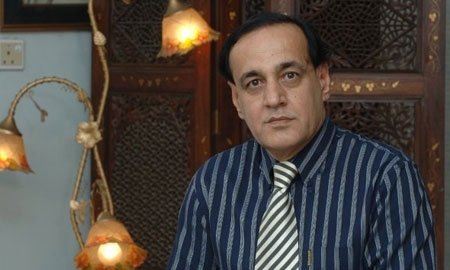The Gulf Cooperation Council (GCC), comprising Saudi Arabia, Qatar, UAE, Kuwait, Bahrain, and Oman, has long been an economic powerhouse due to its abundant natural resources, particularly crude oil and natural gas. While the GCC economies are historically reliant on energy exports, the region increasingly focuses on economic diversification, looking for growth in non-oil sectors such as infrastructure, real estate, agriculture, and renewable energy. This strategic pivot opens up opportunities for Pakistan, especially considering its pivotal geographical location and the economic complementarities between the two regions. Historically, the relationship between Pakistan and the GCC has been primarily centered around political and security cooperation. However, in recent years, there has been a notable shift towards deepening economic ties, particularly in sectors like energy, infrastructure, and agriculture. Energy has been a cornerstone of economic collaboration between Pakistan and the GCC. Saudi Arabia’s $10 billion investment in Gwadar in 2023 to develop an oil refinery exemplifies the growing importance of energy trade in the region. Similarly, Qatar has been a crucial partner in meeting Pakistan’s growing demand for natural gas. In 2016, Qatar signed a long-term agreement to supply LNG to Pakistan, valued at $15 billion. The GCC countries, particularly Saudi Arabia, have played a key role in financing infrastructure development in Pakistan. In 2022, the Saudi Fund for Development (SFD) pledged 30 billion rupees for infrastructure projects in Azad Jammu and Kashmir. Gulf investors have also significantly contributed to Pakistan’s real estate sector, with figures like Malik Riaz and Sheikh Nahyan leading major investments in the country’s property market. These investments help create jobs and boost economic activity in urban areas. In agriculture, the GCC’s role has been particularly strategic. Concerned about food security, Saudi Arabia leased 500,000 acres of land in Pakistan in 2009 to grow wheat. This move not only helps meet Saudi Arabia’s agricultural needs but also contributes to the development of Pakistan’s agricultural sector, enhancing its capacity to meet domestic and regional demands. In manufacturing, the UAE has been importing significant amounts of cement from Pakistan, helping the growth of the country’s cement industry. Pakistan’s trade deficit with the GCC is increasing. Between 2016 and 2020, the trade deficit with the GCC grew from $1.1 billion to $1.3 billion. The depreciation of the Pakistani rupee and rising import costs have further exacerbated this imbalance. Political instability and policy inconsistency, bureaucratic inefficiencies and red-tapism create additional barriers to FDI. Pakistan’s energy crisis is one of the most pressing issues. High-energy costs make it challenging for Pakistani industries to remain competitive, discouraging both domestic and foreign investment. Pakistan’s reliance on expensive imported energy sources, including oil and natural gas, exacerbates the problem. Pakistan should focus on diversifying its exports to reduce its dependence on energy imports. Key sectors like information technology (IT), pharmaceuticals, textiles, and agricultural products offer significant export potential. By investing in renewable energy sources such as hydroelectric, solar, and wind power, Pakistan could reduce its reliance on imported energy. The use of local resources like Thar coal could further reduce energy costs, making Pakistani industries more competitive. With significant investments already being made in infrastructure development, Pakistan should continue to prioritize improvements in transportation, logistics, and industrial parks. This will help create a more business-friendly environment, reduce the cost of doing business, and improve the efficiency of export sectors. Pakistan’s economic relations with the GCC hold substantial promise for the country’s future. Through cooperation in energy, infrastructure, agriculture, and manufacturing, the GCC can become an important partner in Pakistan’s economic transformation. With a more stable and competitive economic environment, Pakistan can strengthen its ties with the Gulf region and pave the way for sustainable growth and development.
Pakistan Deserves Fairness, Not Baseless Allegations
Pakistan and the United States share a complex history of collaboration and discord, but recent baseless accusations and sanctions threaten...
Read more






